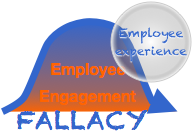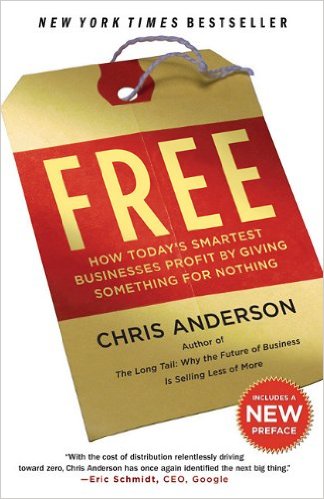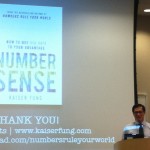
Africa [credit: Mapswire.com]
Africa is a nascent innovation powerhouse, and its leadership will become increasingly obvious during the coming decades, but the seeds are already visible as this post reveals: Africa’s population is exploding, and its young people are adopting tech alternatives to countries’ long-insufficient health, education, and financial infrastructure.
If you’ve been interested in international development for long, you have seen many prognostications about “Africa rising” over the years only to see them fade into oblivion. Predicting profound economic shifts is like predicting earthquakes; you study the driving forces and your algorithms crunch the data.
That isn’t stopping Helga Stegmann. She has led “user experience” agency Mantaray since 2006, and she gave a riveting talk last week in Chicago hosted by partner agency BoldInsight. In my experience, user experience folks rarely have their hands on the pulse of disruptive economic change, but the reason she is an exception reflects that Africa’s economic transformation is happening at the grassroots level (as with most revolutions), and her key orientation is user experience design, so researching users across rapidly evolving interfaces in devices. Follow along with my notes of her remarks […]
 The Employee Engagement Fallacy reveals that most literature, papers, and methods are built on faulty Industrial Economy employment attitudes, and it provides an approach that uses experiential social media to help reframe employment and performance. The Employee Engagement Fallacy reveals that most literature, papers, and methods are built on faulty Industrial Economy employment attitudes, and it provides an approach that uses experiential social media to help reframe employment and performance.
Although the idea of “employee engagement” can be a rare opportunity to increase competitiveness, its practice is compromised by well intended but flawed logic.
Here’s the fallacy: Employee “engagement” is the result of employees’ experiences while they’re working at employers. Few engagement programs focus on employees’ experiences, so they fall short.
Engagement is not achieved by a program or initiative that focuses on the outcome. Employers see much more success at achieving the result when they focus on empowering the experiences their employees want when they decide to work at the employer. Experience is the motor of engagement, so empowering experience is the first step of raising productivity and lowering employment costs, two common employee engagement goals. Here’s how it’s done.
[…]
How Free Things Are Disrupting Businesses + Radical Innovation + Guide to Free Business Models
Book Review: Free/Chris Anderson
 Free is an indispensable introduction to the disruption of “a product for a price,” one of the Industrial Economy’s key constructs. It is rich with examples of many of the pricing innovations and business models with which you’re probably familiar but haven’t thought about in depth. Many of its examples have to do with digital products, which are inherently disruptive because their distribution cost is close to zero, and they can displace legacy analog products. Free is an indispensable introduction to the disruption of “a product for a price,” one of the Industrial Economy’s key constructs. It is rich with examples of many of the pricing innovations and business models with which you’re probably familiar but haven’t thought about in depth. Many of its examples have to do with digital products, which are inherently disruptive because their distribution cost is close to zero, and they can displace legacy analog products.
Free is important and useful for two reasons beyond pricing and business model innovation: it contains a good dollop of behavioral economics with regard to pricing, and it gives numerous examples for thinking beyond the two-party market model that dominated the Industrial Economy, buyer and seller. As Anderson repeatedly shows, in digitally networked markets spawned by the Internet, firms put themselves at significant risk when they don’t adopt a networked ecosystem mindset. For example:
When something becomes free, […]
 Why Machines Won’t Displace Human Workers in the Knowledge Economy is a short thought experiment, in the spirit of all Noodles, which was in response to a post in Wired. In Here’s How to Keep the Robots From Stealing Our Jobs, John Hagel posited that a major rationale for the Knowledge Economy firm would be its role as a “knowledge platform” that enabled people to accelerate their learning and productivity. I highly recommend the post, which sparked many intelligent comments. Why Machines Won’t Displace Human Workers in the Knowledge Economy is a short thought experiment, in the spirit of all Noodles, which was in response to a post in Wired. In Here’s How to Keep the Robots From Stealing Our Jobs, John Hagel posited that a major rationale for the Knowledge Economy firm would be its role as a “knowledge platform” that enabled people to accelerate their learning and productivity. I highly recommend the post, which sparked many intelligent comments.
It’s obvious that many people are having difficulties imagining the world toward which we are hurtling, a world in which machines are getting “smarter” and able to “compete” for work roles that humans now do. In writing The Social Channel App, I thought long and hard about the Knowledge Economy and people’s roles in it, and its main thesis is that everything, from states and enterprises to people and products, will be differentiated in the Social Channel and that “humanness” will assume a much more visible importance in the economy.
[…]
 Big Data in Healthcare and Education shares how U.S. and UK government agencies used big data & analytics to help evolve national policy and outcomes. These examples are useful because they show the range of big data projects; the U.S. example is simple, yet it has profound impact on the health of the citizenry and therefore on the economy. The UK example is more involved and shows in depth how organizations can use big data to address expensive programs that are full of unknowns—like national education. Big Data in Healthcare and Education shares how U.S. and UK government agencies used big data & analytics to help evolve national policy and outcomes. These examples are useful because they show the range of big data projects; the U.S. example is simple, yet it has profound impact on the health of the citizenry and therefore on the economy. The UK example is more involved and shows in depth how organizations can use big data to address expensive programs that are full of unknowns—like national education.
This post shares my notes from a recent Deloitte Dbriefs webcast, Analytics in Action, which you may watch and download its slides. The webcast was moderated by Steve Dahl, and David Weir and Haris Irshad presented the examples.
[…]
 The rise of design signaled the fall of Nokia, RIM and Motorola describes how engineering is becoming less important in distinguishing hightech and other products from each other. It also presages a seismic shift away from product towards customer experience in determining market leaders for people-oriented products and services. A very large portion of product companies will follow in the footsteps of these three former mobile phone titans unless they transform their focus from product features (engineering) to customer experience (design). The rise of design signaled the fall of Nokia, RIM and Motorola describes how engineering is becoming less important in distinguishing hightech and other products from each other. It also presages a seismic shift away from product towards customer experience in determining market leaders for people-oriented products and services. A very large portion of product companies will follow in the footsteps of these three former mobile phone titans unless they transform their focus from product features (engineering) to customer experience (design).
By no means do I imply that engineering is not important—in fact, it is more important than ever—I assert that it is less important than design in differentiating people-oriented products. Engineering is abstracted away from the customer/user of the product, and design explicitly addresses how the customer uses the product to attain outcome(s).
Design is to the Knowledge Economy what engineering was to the Industrial Economy.
[…]
 Omni-Channel Retail, Mobile and Big Data offers tantalizing glimpses into current and future omni-channel retail trends and technologies. I “sat down” with three thought leaders and a crowd of smart people on AllAnalytics’ real-time webcast, which featured real-time Q&A with the panelists afterward. You can watch it here. Omni-Channel Retail, Mobile and Big Data offers tantalizing glimpses into current and future omni-channel retail trends and technologies. I “sat down” with three thought leaders and a crowd of smart people on AllAnalytics’ real-time webcast, which featured real-time Q&A with the panelists afterward. You can watch it here.
Panelists Dr. Erik Brynjolfsson, Dr. Yu Jeffrey Hu and Dr. Mohammad Saifur Rahman collaborate on numerous projects, and they are intensely interested in retail transformation. They also referenced one of their recent papers, Competing in the Age of Omnichannel Retailing, and I have added some of its points here as well. The webcast was well moderated by AllAnaytics’ Noreen Seebacher and Beth Schultz.
Although it wasn’t discussed in depth, I observe that big data is especially poignant to retailers for two reasons: they have extremely rich internal, proprietary transaction data on customers (loyalty cards, credit cards, returns information, call center information, service information) and retail customers are the most free-wheeling online. Retail customers discuss their experiences in situations in which they use most types of products. This gives retailers priceless […]

[UPDATED] Big Data Practical Primer is my notes from Kaiser Fung’s presentation at Big Frontier in which he highlighted his new book, Numbers Rule Your World. Big data is a simple word, but its nuances are critical and require a new way of thinking. This presentation did a good job of covering many high-level definitions and issues of big data & analytics and combined those with some practical how-tos that may surprise you. It can be fairly easy to make serious impact, but, as I suggest in Insights, the biggest barrier to big data is one of imagination and the requirement to think creatively about using data correctly to make business decisions that pay off.
[…]
 Chicago-Style Innovation is my notes from Lightbank Innovation Day, which took place on 9 May 2013 at the City Winery (presentations) and Lightbank’s offices (networking). Throughout the day, it was obvious that the Knowledge Economy’s Social Channel was unfolding; entrepreneurs’ startups are stripping off an increasing breadth of enterprise processes and using digital social software to improve them. For example, Needle’s platform creates experts in user (customer) use cases and outcomes that outperform anyone at retail; Fieldglass, HighGround, Fooda, oDesk and TalentBin take aim at various parts of human capital while Aon Hewitt showed how to practice enterprise innovation on the inside; DoubleDutch aims to [at long last] digitize trade shows and conferences through its platform’s geosocial functions. Sprout Social and Contently offered social tools. Chicago-Style Innovation is my notes from Lightbank Innovation Day, which took place on 9 May 2013 at the City Winery (presentations) and Lightbank’s offices (networking). Throughout the day, it was obvious that the Knowledge Economy’s Social Channel was unfolding; entrepreneurs’ startups are stripping off an increasing breadth of enterprise processes and using digital social software to improve them. For example, Needle’s platform creates experts in user (customer) use cases and outcomes that outperform anyone at retail; Fieldglass, HighGround, Fooda, oDesk and TalentBin take aim at various parts of human capital while Aon Hewitt showed how to practice enterprise innovation on the inside; DoubleDutch aims to [at long last] digitize trade shows and conferences through its platform’s geosocial functions. Sprout Social and Contently offered social tools.
Presenters Gian Fulgoni, J Schwan and Ramon De Leon shared valuable advice for entrepreneurs, investors and enterprise executives. Fulgoni provided statistics that showed how mobile was eclipsing ecommerce and analog commerce; Schwan opened the audience’s eyes to Ubiquitous Computing and the Internet of Things, and De Leon showed the power of (pervasively ;^) being yourself.
[…]

Ron May, 1956-2013
Ron May Digital Social Pioneer, and the notorious Chicago hightech commentator and analyst, died on 23 June 2013. Since I knew Ron longer and better than many people, I’ll reflect on what I knew of his life and considerable gifts and contributions. Above all, I’ll try to convey what Ron taught me about the digital world, where he was a pioneer among pioneers.
I met Ron in late 1996 in Dick Reck’s office at KPMG, when The May Report was fledging. It was obvious that he was unusually smart and passionate and motivated, and I learned that these traits were the foundation of Ron May the person. Ron May cared, and he had strong opinions. He had a brilliant inquisitive mind and indefatigable energy. I had a few conversations with Ron about his health over the years, and I suspect that it had a large impact on how he felt and interacted in public.
[…]
|
|


 Free is an indispensable introduction to the disruption of “a product for a price,” one of the Industrial Economy’s key constructs. It is rich with examples of many of the pricing innovations and business models with which you’re probably familiar but haven’t thought about in depth. Many of its examples have to do with digital products, which are inherently disruptive because their distribution cost is close to zero, and they can displace legacy analog products.
Free is an indispensable introduction to the disruption of “a product for a price,” one of the Industrial Economy’s key constructs. It is rich with examples of many of the pricing innovations and business models with which you’re probably familiar but haven’t thought about in depth. Many of its examples have to do with digital products, which are inherently disruptive because their distribution cost is close to zero, and they can displace legacy analog products. Why Machines Won’t Displace Human Workers in the Knowledge Economy is a short thought experiment, in the spirit of all Noodles, which was in response to a post in Wired. In Here’s How to Keep the Robots From Stealing Our Jobs, John Hagel posited that a major rationale for the Knowledge Economy firm would be its role as a “knowledge platform” that enabled people to accelerate their learning and productivity. I highly recommend the post, which sparked many intelligent comments.
Why Machines Won’t Displace Human Workers in the Knowledge Economy is a short thought experiment, in the spirit of all Noodles, which was in response to a post in Wired. In Here’s How to Keep the Robots From Stealing Our Jobs, John Hagel posited that a major rationale for the Knowledge Economy firm would be its role as a “knowledge platform” that enabled people to accelerate their learning and productivity. I highly recommend the post, which sparked many intelligent comments. Big Data in Healthcare and Education shares how U.S. and UK government agencies used big data & analytics to help evolve national policy and outcomes. These examples are useful because they show the range of big data projects; the U.S. example is simple, yet it has profound impact on the health of the citizenry and therefore on the economy. The UK example is more involved and shows in depth how organizations can use big data to address expensive programs that are full of unknowns—like national education.
Big Data in Healthcare and Education shares how U.S. and UK government agencies used big data & analytics to help evolve national policy and outcomes. These examples are useful because they show the range of big data projects; the U.S. example is simple, yet it has profound impact on the health of the citizenry and therefore on the economy. The UK example is more involved and shows in depth how organizations can use big data to address expensive programs that are full of unknowns—like national education. Omni-Channel Retail, Mobile and Big Data offers tantalizing glimpses into current and future omni-channel retail trends and technologies. I “sat down” with three thought leaders and a crowd of smart people on AllAnalytics’ real-time webcast, which featured real-time Q&A with the panelists afterward. You can watch it here.
Omni-Channel Retail, Mobile and Big Data offers tantalizing glimpses into current and future omni-channel retail trends and technologies. I “sat down” with three thought leaders and a crowd of smart people on AllAnalytics’ real-time webcast, which featured real-time Q&A with the panelists afterward. You can watch it here.
 Chicago-Style Innovation is my notes from Lightbank Innovation Day, which took place on 9 May 2013 at the City Winery (presentations) and Lightbank’s offices (networking). Throughout the day, it was obvious that the Knowledge Economy’s Social Channel was unfolding; entrepreneurs’ startups are stripping off an increasing breadth of enterprise processes and using digital social software to improve them. For example, Needle’s platform creates experts in user (customer) use cases and outcomes that outperform anyone at retail; Fieldglass, HighGround, Fooda, oDesk and TalentBin take aim at various parts of human capital while Aon Hewitt showed how to practice enterprise innovation on the inside; DoubleDutch aims to [at long last] digitize trade shows and conferences through its platform’s geosocial functions. Sprout Social and Contently offered social tools.
Chicago-Style Innovation is my notes from Lightbank Innovation Day, which took place on 9 May 2013 at the City Winery (presentations) and Lightbank’s offices (networking). Throughout the day, it was obvious that the Knowledge Economy’s Social Channel was unfolding; entrepreneurs’ startups are stripping off an increasing breadth of enterprise processes and using digital social software to improve them. For example, Needle’s platform creates experts in user (customer) use cases and outcomes that outperform anyone at retail; Fieldglass, HighGround, Fooda, oDesk and TalentBin take aim at various parts of human capital while Aon Hewitt showed how to practice enterprise innovation on the inside; DoubleDutch aims to [at long last] digitize trade shows and conferences through its platform’s geosocial functions. Sprout Social and Contently offered social tools.